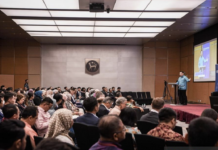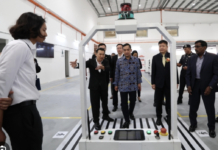KUALA LUMPUR, March 8 – The Ministry of Women, Family and Community Development (KPWKM) will focus on initiatives based on the 4K framework – skills, finance, balance and equality – in efforts to empower women in the country.
Its Minister Datuk Seri Rina Mohd Harun said the initiatives developed by the Women’s Development Department include providing skills opportunities, focusing on financial strength, raising the importance of the aspect of balance and giving priority to efforts towards achieving equality and self-leadership.
“t is aligned with the results of a survey by the Social Institute of Malaysia in July 2020 which found that the average woman needs support in the form of skills courses that give them the opportunity to generate income,” she said in her speech at the International Women’s Day 2021 celebration officiated by Prime Minister Tan Sri Muhyiddin Yassin, virtually, today.
Rina said the framework would be the basis for the formation of a women’s empowerment programme this year which focuses on implementation, including forging closer cooperation with more parties in the aspect of women’s protection.
Apart from that, she said, it also emphasised on increasing income -generating opportunities thus reducing the unemployment rate, especially among B40 (lower income bracket) women, besides strengthening communication networks and information delivery between her ministry and target groups through collaboration with more women-related non -governmental organisations.
Meanwhile, Rina admitted that the journey to raise the women’s agenda in Malaysia was still a long and winding one even though many initiatives are implemented every year.
She said, as an example, 969 special programmes for women were implemented last year by the Women’s Development Department involving 400,438 people.
However, she said the Global Gender Gap Index 2020 report released by the World Economic Forum (WEF) showed that Malaysia was ranked 104th out of a total of 153 countries.
“Roughly speaking, the WEF targets that the East Asia and Pacific region will need about 163.4 more years to completely close this gender gap.
“Besides that, based on the comparison of WEF scores, the overall achievements of other ASEAN countries were found to be more ahead than Malaysia, which is ranked ninth out of 10 (ASEAN) countries,” she added.



















